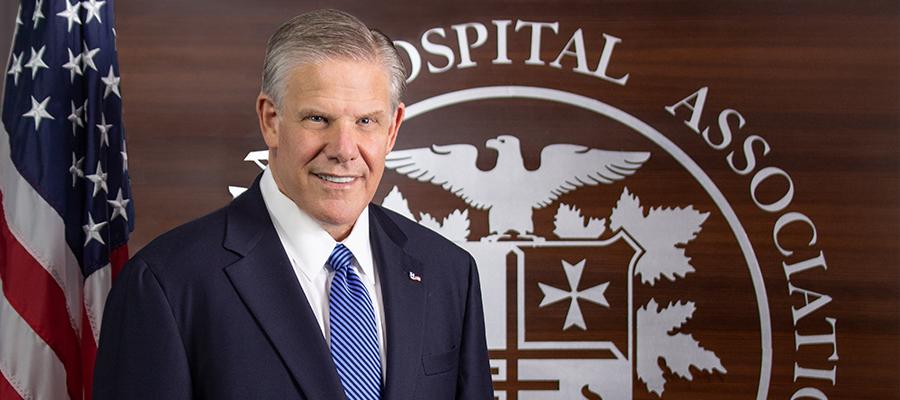Perspective: We care, we vote — making our voice heard in 2020

231 years ago today, the states chose their electors for our country’s first presidential election. Our elections have changed a bit since then, but what hasn’t changed is their importance. That’s why — this week — the AHA launched our new We Care, We Vote webpage, which provides new resources for you to stay up to speed on the issues and candidates that matter to our field.
As has been the case for the past several elections, health care issues are front-and-center on voters’ minds. The AHA does not take sides in the presidential election; instead, we seek to be a resource for all candidates on health policy issues, and our Washington team is liaising with each campaign for this purpose. When it comes to AHAPAC and congressional races, however, that of course is a different situation: We are supporting candidates who understand the vital role hospitals and health systems play.
You are leaders in the community. You’re working to make your patients healthier by providing high-quality care and addressing the social determinants of health. You’re making sure your communities always have a place to turn for care, when and where they need it. You are connected to the community like few others … and you are experts on health care issues. So, it’s vitally important that candidates and elected officials hear your voice. Moreover, you are well positioned to be both an educator and resource to them in understanding the implications of health policy issues and their impact in the communities you both serve. After all, our patients are their constituents.
We Care, We Vote will help you engage with and ask questions of candidates at every level throughout the election year. We’ve produced resources on the top issues to articulate our key messages — including on affordability, rural health care, drug prices and Medicare for All — and put them all in one convenient location. We’ve created candidate questionnaires and wallet-size issue cards, all of which are printable and customizable, to provide a tool for engaging in conversation with candidates.
We’ve developed a virtual map with election information for each state, and links to webpages for AHAPAC and the Coalition to Protect America’s Health Care. We’ve started running ads in the early primary states to put the hospital and health system message front-and-center. And we’re just getting started: Over the next 10 months, we’ll add new resources you can use to help mobilize your team and your community.
The election isn’t just about making our voices heard, though; we also have an obligation to be good citizens. That’s why we’re providing information so hospitals and health systems can help people register to vote and encourage them to vote. We have also produced legal guidance for you on exactly what types of activities tax-exempt organizations can and cannot engage in around elections.
The takeaway: This election has major implications for our field, our country and health across America … and we have a real opportunity to further Advance Health in America. Election Day is fewer than 10 months away so get ready, get connected and get involved.

